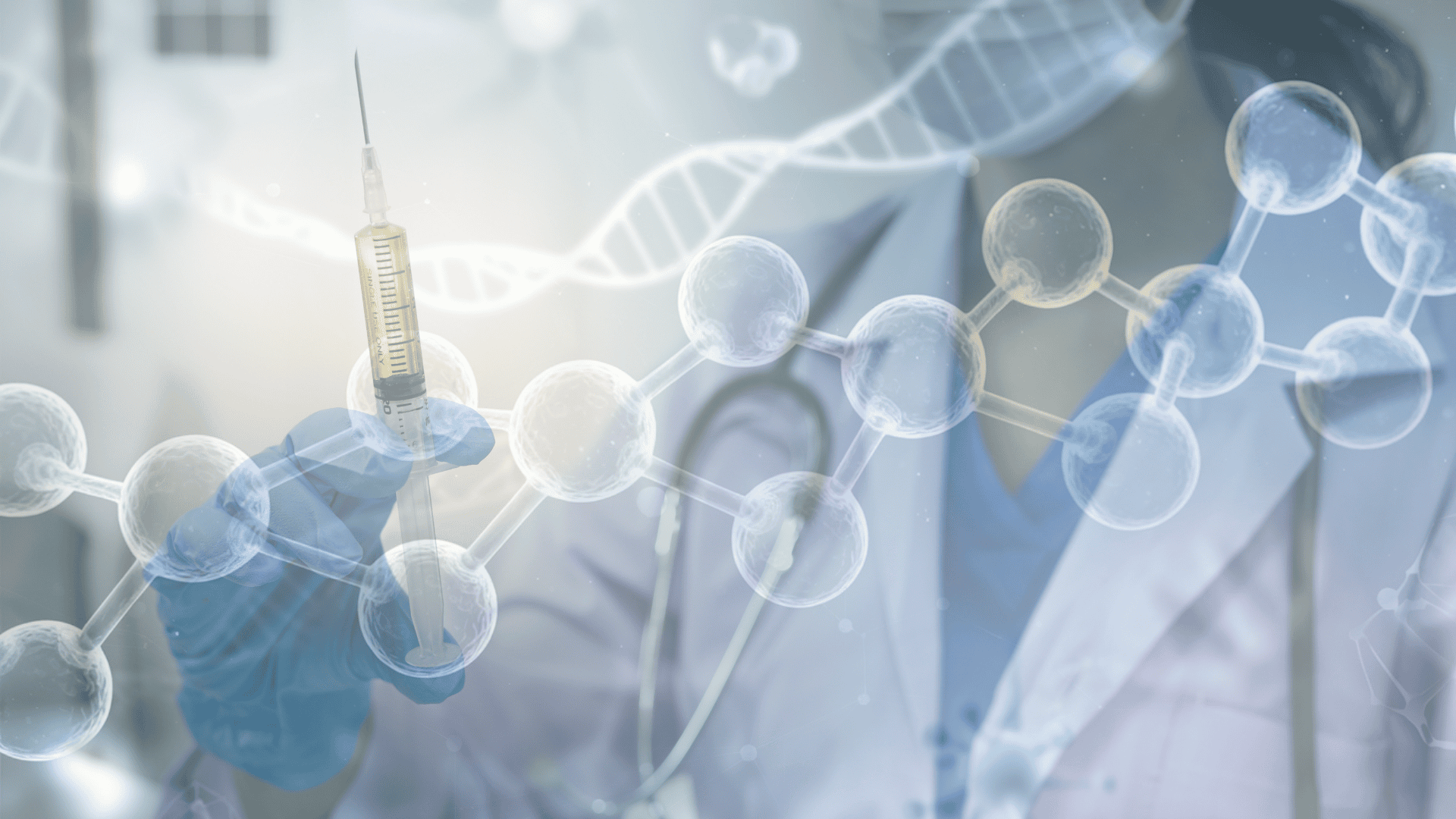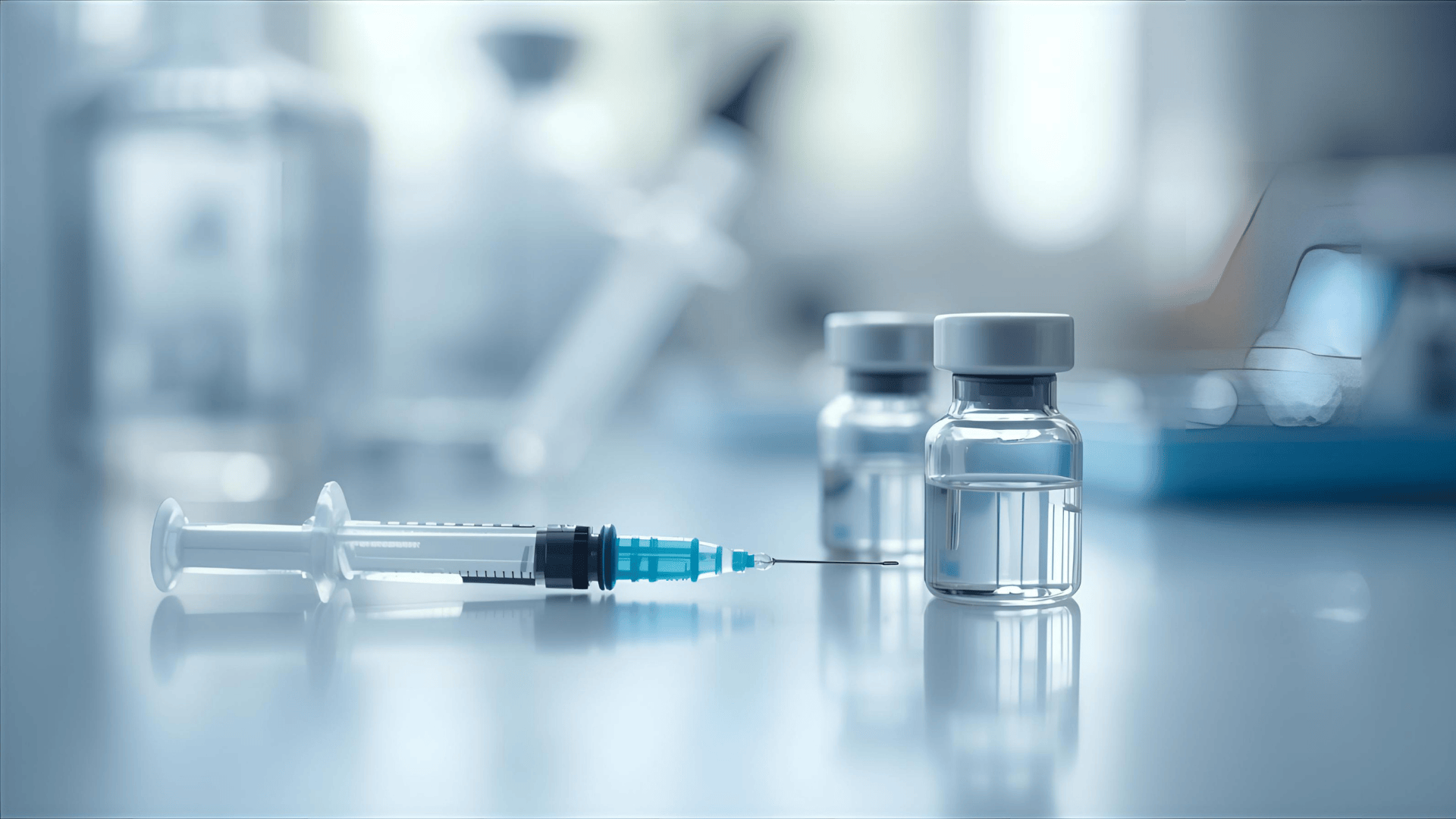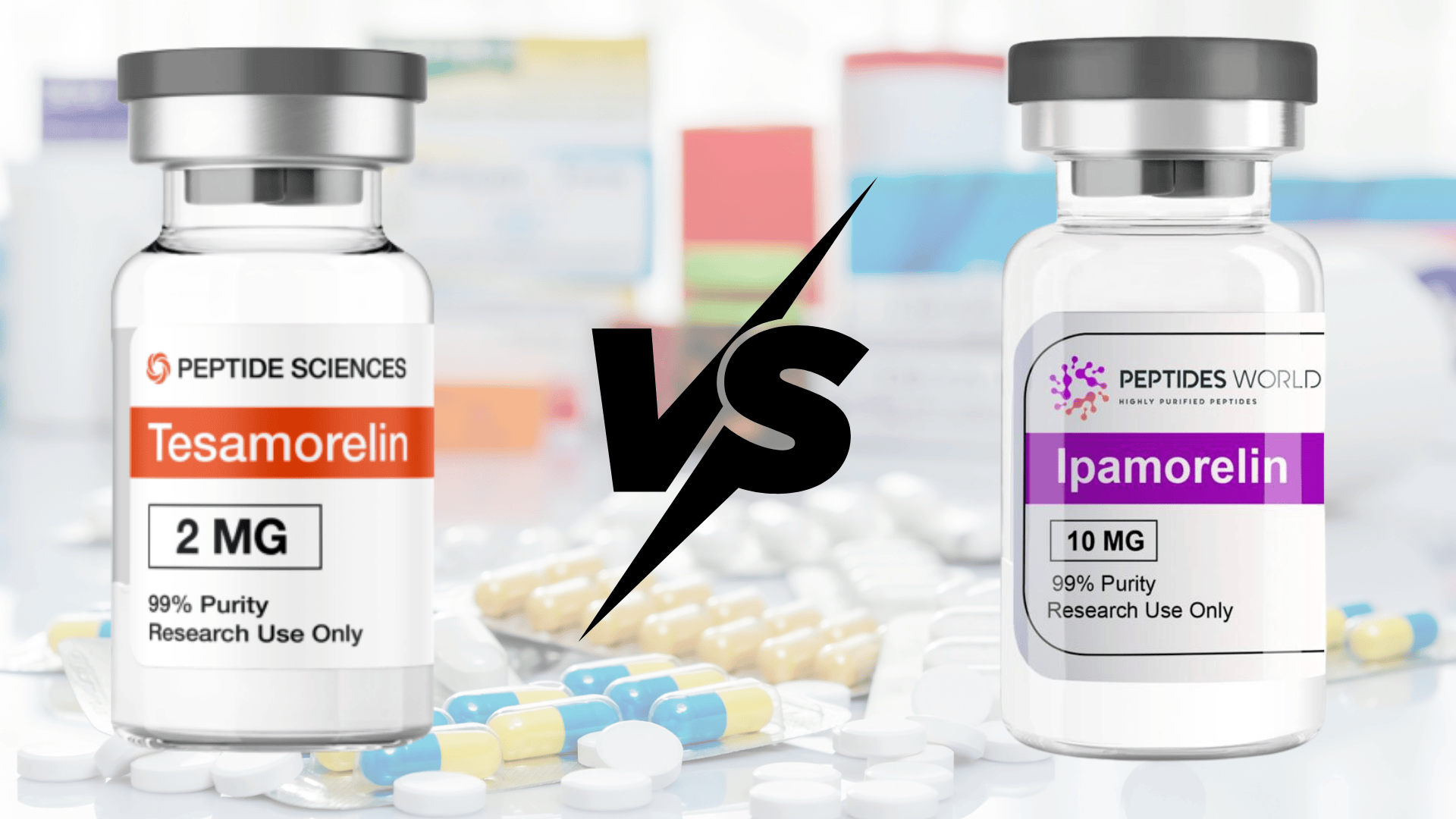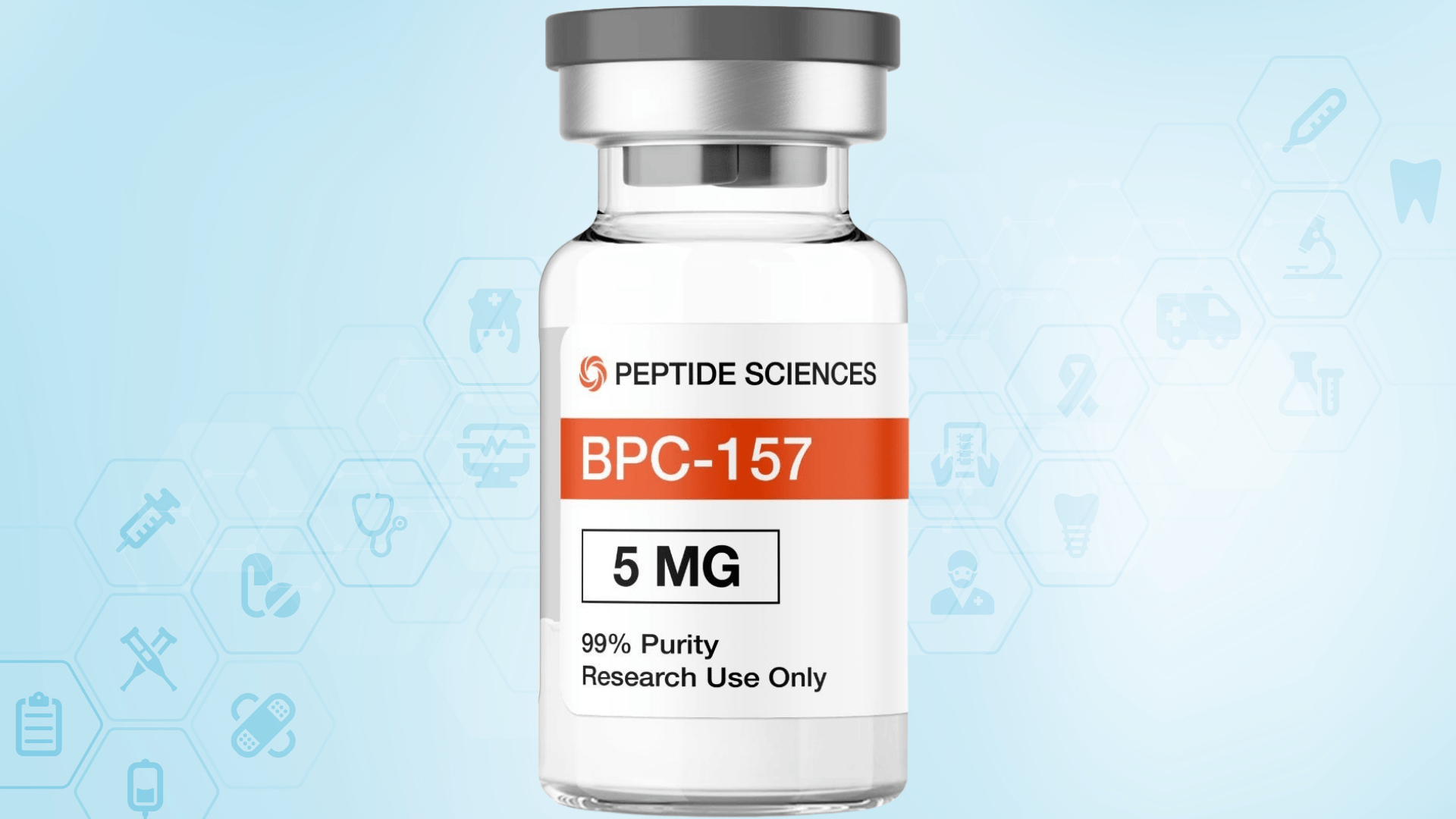Your body already knows how to heal itself. It just needs the right signals. That’s where peptide treatments come in.
These tiny amino acid chains work like messengers, telling your cells when to repair tissue, boost immunity, or fight inflammation.
What was once limited to research labs is now helping athletes recover more quickly, patients manage chronic conditions, and individuals slow down the aging process.
But peptide therapy isn’t a magic cure; it’s real science with real applications.
In this guide, you’ll learn what peptides are, how different treatments work, their proven benefits, and safety concerns.
We’ll also explore real-world applications in sports medicine, dermatology, and chronic disease management, as well as what the future holds for personalized peptide therapy.
What Are Peptides?
Peptides are short chains of amino acids, the building blocks your body uses to create proteins.
Think of them as smaller, simpler versions of proteins. While proteins contain hundreds or thousands of amino acids, peptides typically have anywhere from 2 to 50 amino acids.
Your body naturally produces peptides to send signals between cells, support healing, and regulate various functions like hormone production, immune response, and tissue repair.
Unlike full proteins, peptides are small enough to be absorbed quickly and can target specific cells or processes.
They act as messengers, telling your body when to heal, grow, or respond to different needs.
Hormones like insulin are actually peptides, too, which underscores their vital role in maintaining the body’s smooth functioning.
What is Peptide Therapy & Peptide Treatments?
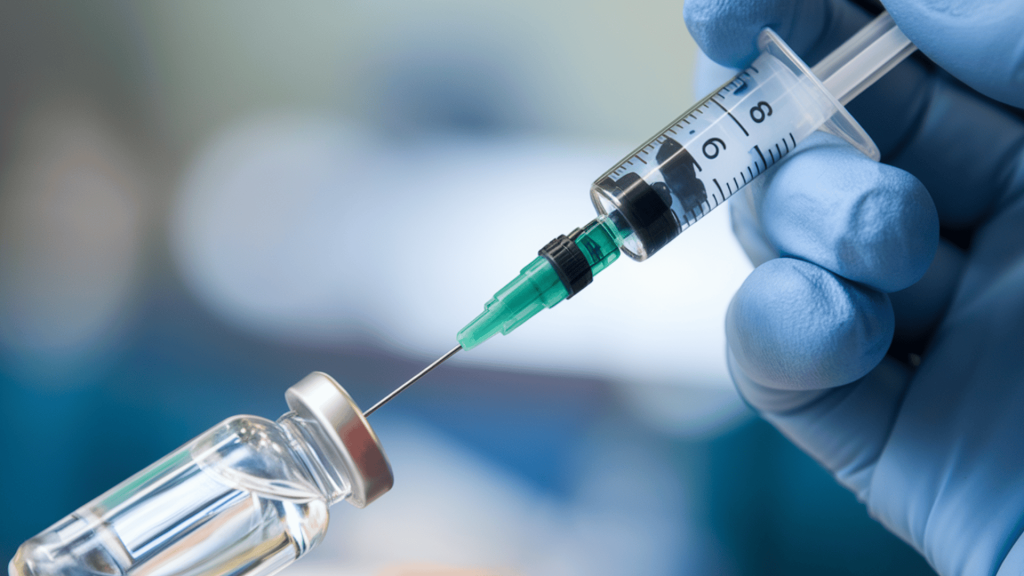
Peptide therapy is a medical approach that utilizes specific peptides to treat various health conditions, improve performance, or slow the aging process.
In clinical practice, doctors select peptides based on what your body needs, whether that’s repairing tissue, boosting immunity, or balancing hormones.
The difference between general peptide use and clinical peptide treatments is straightforward: general use may include over-the-counter supplements containing peptides for skin care or fitness purposes.
Clinical treatments, however, are prescribed and monitored by healthcare providers who use pharmaceutical-grade peptides for targeted medical goals.
Common Delivery Methods for Peptide Treatments:
The method of delivery depends on the type of peptide and the desired effect.
- Injections – Most common method; delivers peptides directly into the bloodstream for fast absorption
- Topical creams – Applied to skin for localized effects like anti-aging or wound healing
- Oral supplements – Capsules or tablets; convenient but may have lower absorption rates
- Nasal sprays – Used for peptides targeting brain function or hormonal regulation
- Sublingual tablets – Dissolve under the tongue for quicker absorption than oral pills
Types of Peptide Treatments
Not all peptides do the same thing. Depending on your health goals, different peptide treatments target different areas of your body. Here’s a breakdown of the main types and their applications in modern medical practice.
| Treatment Type | What It Does | Common Uses |
|---|---|---|
| Anti-Aging Treatments | Boosts collagen. Tightens skin. Reduces wrinkles. Improves texture. | Fine lines, sagging skin, age spots, skin firmness, and facial rejuvenation |
| Metabolic Treatments | Regulates blood sugar. Increases insulin sensitivity. Supports fat burning. Controls appetite. | Weight loss, obesity, metabolic syndrome, blood sugar control, body composition |
| Sports & Recovery Treatments | Speeds muscle repair. Reduces recovery time. Increases stamina. Heals injuries faster. | Post-workout recovery, muscle tears, ligament injuries, performance, and endurance |
| Immune Treatments | Strengthens immune response. Reduces inflammation. Balances immune activity. | Autoimmune disorders, chronic inflammation, frequent infections, and immune deficiencies |
| Neurological Treatments | Supports brain health. Improves memory and focus. Balances mood. Protects nerve cells. | Cognitive decline, memory issues, anxiety, depression, focus problems, and brain aging |
Pro Tip: Many people combine multiple peptide treatments for enhanced results. This depends on their health goals. Always consult a healthcare provider first. They’ll determine which peptides fit your specific needs.
Benefits of Peptide Treatments
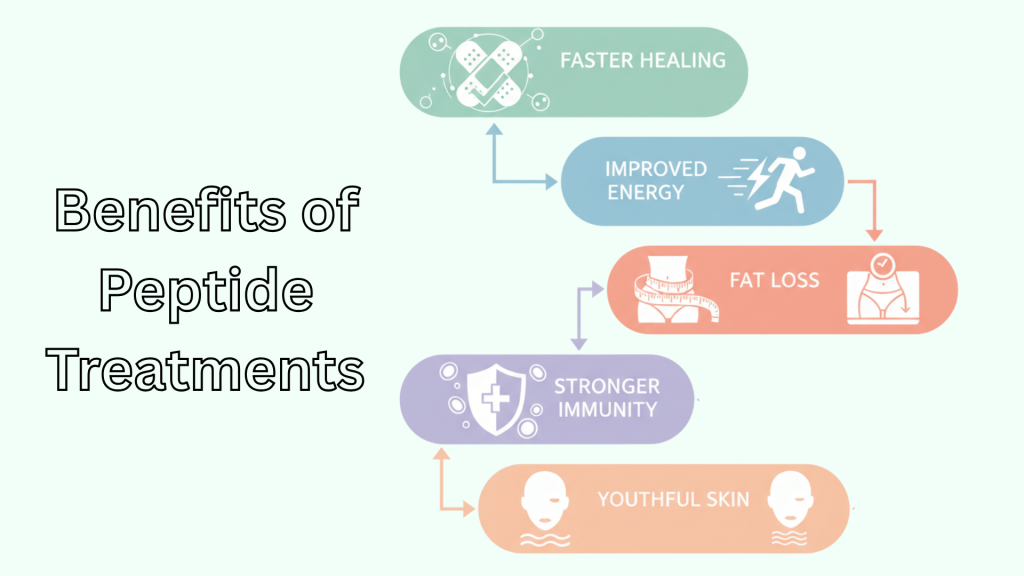
So why are doctors, athletes, and wellness experts turning to peptide treatments? Because they offer real, measurable results across multiple areas of health. Let’s examine what makes peptide therapy a worthwhile consideration.
1. Faster Healing & Cellular Regeneration
Peptides speed up your body’s natural repair process. They signal cells to regenerate damaged tissue more quickly.
This means wounds heal faster and recovery time is significantly shortened. Athletes and surgery patients often see visible improvements within weeks.
2. Improved Energy, Performance, and Recovery
You’ll notice better stamina during workouts and daily activities. Peptides help muscles recover faster after exercise.
Many users report feeling more energized throughout the day. Physical and mental fatigue decreases, allowing you to perform at your best.
3. Fat Loss and Metabolic Regulation
Certain peptides boost your metabolism and help burn stored fat. They improve how your body processes glucose and insulin.
This makes weight management easier and more sustainable. People struggling with stubborn weight often see results where traditional diets failed.
4. Stronger Immunity & Reduced Inflammation
Peptides strengthen your immune system’s response to threats. They reduce chronic inflammation that causes pain and disease.
Your body becomes better at fighting infections naturally. This is especially helpful for those with autoimmune or inflammatory conditions.
5. Youthful Skin & Anti-Aging Effects
Collagen-boosting peptides make skin firmer and smoother. Fine lines and wrinkles become less visible over time.
Your skin looks healthier and more vibrant with continued use. Many people notice a glow that makeup and creams alone can’t provide.
Are Peptide Treatments Safe?
Peptide treatments are generally safe when used correctly under the guidance of a medical professional.
However, they can cause side effects like injection site reactions, water retention, increased hunger, or hormonal changes, depending on the type used.
The FDA has approved certain peptides for specific medical conditions, but many peptides used in wellness clinics are not FDA-approved and fall into a gray area of regulation.
This is why medical guidance is critical; a qualified doctor can assess your health history, choose the right peptides, monitor your progress, and adjust dosages to minimize risks.
Self-prescribing or buying peptides from unverified sources can be dangerous and may lead to contaminated products or serious health complications.
Real-World Applications of Peptide Treatments
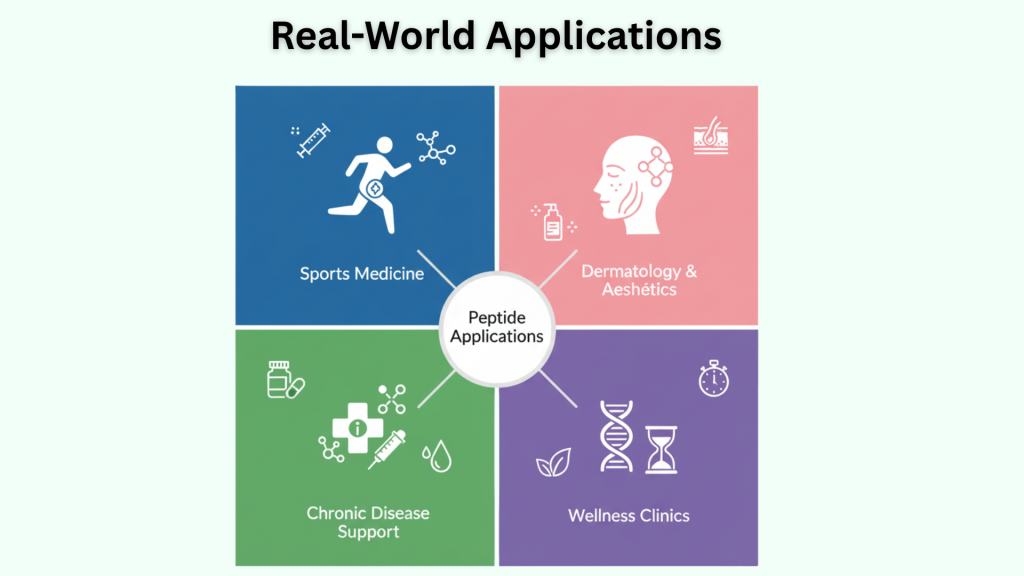
Peptide treatments are no longer just lab experiments. They’re being used right now in clinics, hospitals, and wellness centers across the world. Here’s where you’ll actually see them making a real difference.
- Sports Medicine: Recovery and Endurance. Athletes utilize peptides like BPC-157 and TB-500 to expedite injury healing, reduce inflammation, and enhance endurance during training.
- Dermatology & Aesthetics: Anti-Aging, Skin Rejuvenation: Dermatologists prescribe collagen peptides and GHK-Cu to reduce wrinkles, tighten skin, and restore a youthful glow.
- Chronic Disease Support: Diabetes, Autoimmune Disorders – Peptides help manage blood sugar levels in diabetes patients and reduce inflammation in autoimmune conditions, such as rheumatoid arthritis.
- Wellness Clinics: Biohacking and Longevity – Longevity-focused clinics utilize peptides to optimize hormones, enhance sleep, improve mental clarity, and slow the aging process.
Future of Peptide Therapy & Treatments
The future of peptide therapy looks incredibly promising as science moves toward personalized medicine.
Doctors will soon design custom peptides tailored to your unique genetic makeup and individual health needs.
Cancer researchers are testing peptides that target tumor cells without harming healthy tissue, while regenerative medicine uses them to repair damaged organs and tissues.
Artificial intelligence is accelerating the process by designing new peptides that work more effectively and efficiently than ever before.
Meanwhile, integrative medicine practitioners are combining peptides with nutrition, lifestyle changes, and other natural therapies to treat the whole person.
As research continues and technology advances, peptide treatments will likely become more accessible, affordable, and precise in addressing a wide range of health conditions.
Final Thoughts
Peptide treatments represent a real shift in how we approach health and healing.
From speeding up recovery to managing chronic conditions, these tiny amino acid chains provide targeted solutions that work in harmony with your body’s natural processes.
However, remember that peptides aren’t supplements you buy online and try yourself. They require proper medical guidance, quality sourcing, and careful monitoring.
The science is still growing, and not every peptide is FDA-approved or right for everyone.
If you’re curious about peptide therapy, talk to a qualified healthcare provider who understands your health history and goals.
The future of personalized medicine is here, and it starts with informed choices.
Ready to explore peptide treatments? Share your thoughts or questions in the comments below. We’d love to hear from you.

